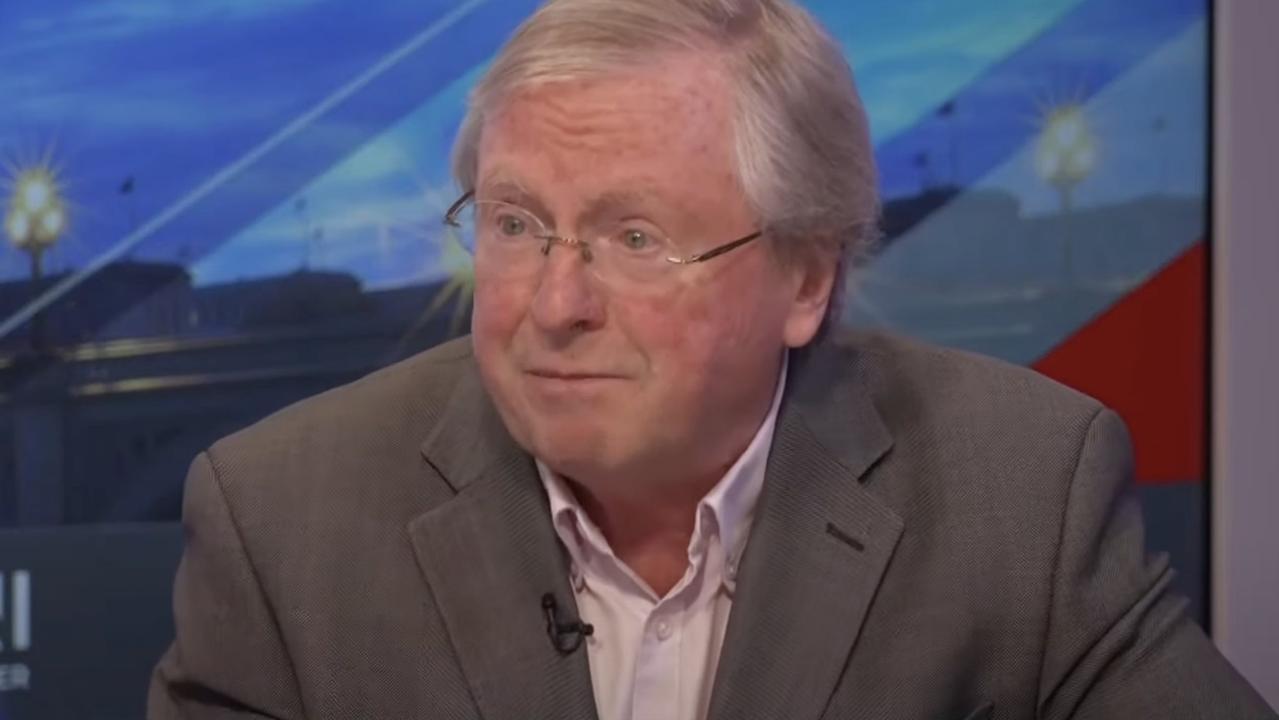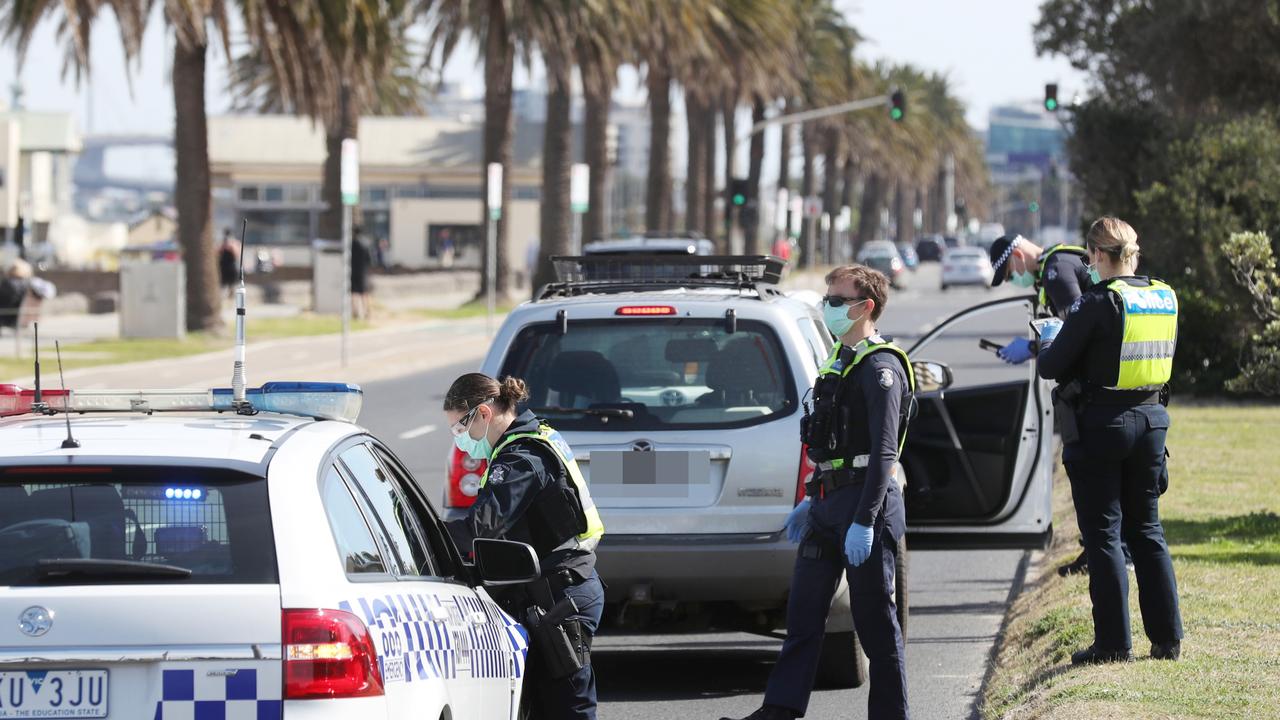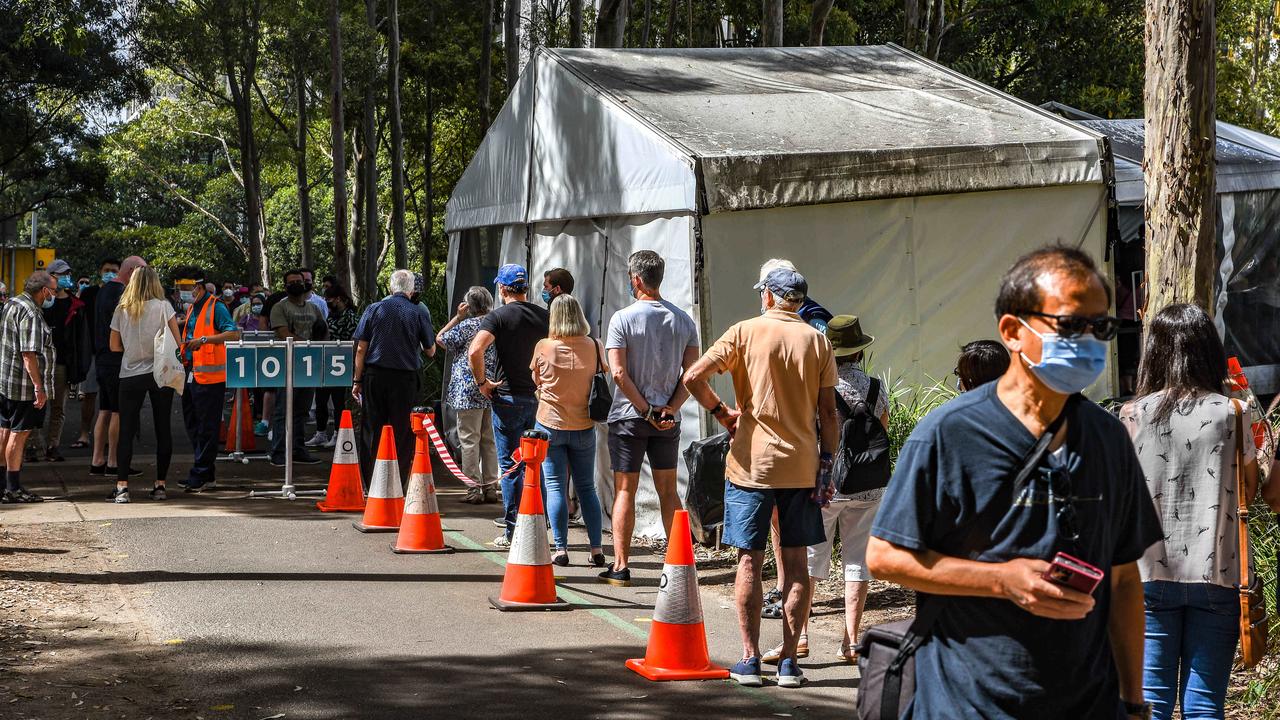‘Total madness’: UK professor slams Australia’s ‘totalitarian, Orwellian’ Covid response
A UK expert has slammed Australia’s Covid response, describing lockdowns as “total madness” and claiming vaccines were ineffective.
A leading UK oncologist has slammed Australia’s “disgraceful” Covid response, describing lockdowns and mask mandates as “total madness” and claiming vaccines were largely ineffective at saving lives while causing “a lot” of adverse reactions.
Professor Angus Dalgleish, head of oncology at St George’s Hospital in London and a prominent Covid sceptic, sat down with 2GB host Ben Fordham on Thursday where he rated Australia’s response to the pandemic as “absolutely appalling”.
“I was hoping for something better because it was appalling in the UK,” he said.
“And then what we find is that Australia, New Zealand and Canada all overreacted exactly the same.”
Prof Dalgleish said the only country that “got it right long-term” was Sweden.
“Sweden made the same mistake as the UK initially, putting all of the people from hospital into care homes without checking them,” he said.
“But apart from that blip, they didn’t have any lockdown mandates, they had no … mandates, the vaccines were for people over 70, and they’ve got the lowest excess death rate in the entire western world.”

Fordham pointed out that “meanwhile here in Sydney we were told we weren’t allowed to go five kilometres from our homes, at one stage we were wearing masks even when we were outdoors”.
“That’s absolute madness,” Prof Dalgleish said.
“The only reason you get people to wear masks is to instil a state of fear [in] them. I said right at the beginning, the very best mask, the smallest hole is three times bigger than the largest virus. There’s no science behind it whatsoever. You wear masks in theatres to stop you coughing into somebody’s abdomen or something, it’s not for viruses.”
Similarly he said keeping people locked indoors was “total madness”.
“I predicted at the time and actually wrote to the medical officers and all the people advising the government, that we don’t know what it is, we know it’s respiratory, so lockdown makes no sense whatsoever, particularly when there was no quarantine,” he said.
“We were locked down for three weeks before somebody pointed out that we had planes coming in from Wuhan every day. I wrote and said this is madness keeping people inside. The only thing that correlates with infectivity survival is vitamin D levels. There’s four major papers come out on that to show that vitamin D is far more important than any vaccine. And yet they said the evidence wasn’t strong enough.”
He added that controversial hotel quarantine rules for incoming travellers were “stupid” and a “complete waste of money”, and argued “I don’t think there were any lives saves whatsoever” by the focus on “stopping the spread”.

“If you get the virus naturally you can build up innate immunity to it, and they denied this,” he said.
“You just get exposed and you get stimulated. I’m a very good example. I never had Covid, yet I was working in an environment where my junior doctors and nurses were going down off for weeks on end. I tested myself in the end and I’ve got a very strong T cell response to the virus. So I knew I had it but I never had any symptoms. I think the reason is that I dosed myself up with vitamin D as I advised everybody else to do. I’m over 70 so I’m a so-called ‘at risk’.”
He again highlighted Sweden’s response as “far more pragmatic”.
“They say grandmothers and people are at risk, just be careful, don’t go too close to them,” he said.
“They didn’t lock everybody down. So society wasn’t strangled at the neck as it were. Why did you have to lock young, fit people who couldn’t work up in flats at home?”
Prof Dalgleish slammed vaccine mandates as “absolutely disgraceful”.
“It was totalitarian,” he said.
“It’s descent into an Orwellian dystopia, especially as we knew by the times the vaccines were rolled out the virus had changed completely. The vaccines, whatever we were told, I don’t believe had any beneficial effect whatsoever because the virus changes, mutates so quickly.”
He suggested that when the vaccines were rolled out “the wave of infection was falling off naturally, it didn’t need any help to damp the wave”.
“It’s the same with the lockdown — we introduced the lockdown as the first wave was flattening out,” he said.
“If you’d done no lockdown there would have been no difference. I believe exactly the same thing happened with the vaccine. I had warned them do not expect great protection from the vaccine that’s based on the spike protein because there will be too much variability and the virus will just escape. Therefore it won’t prevent transmission. We now know that’s the case, the vaccines never prevented transmission. They were then trying to say it would save you from serious disease and death. Now a full assessment of the data, there’s no evidence for that either.”

Fordham asked if Prof Dalgleish doubted whether vaccines saved lives.
“Yes I do, completely,” he said.
“They came in too late. They gave the appearance of saving lives because they were coming in on a wave of people going in and dying. But I honestly don’t believe … there might have been a very few, but we’re talking probably 1 or 2 per cent.”
That was “not significant compared to what they wanted to do with them — roll them out to everybody and then have mandated vaccines when there was no evidence it prevented transmission at a time when the disease was killing 0.085 per cent of the population with an average age of 82”.
“I mean it was complete, utter blindness and madness,” he said.
Asked whether he had encountered many adverse reactions to Covid vaccines, Prof Dalgleish said he had “come across a lot”.
“Let alone my patients, just within my family and circle of friends, everybody I know knows somebody who’s had an adverse reaction to the vaccine,” he said.
Prof Dalgleish’s comments are at odds with most public health authorities and medical experts.
The federal Health Department, which encourages Australians to “rely on reputable sources of information”, says Covid vaccines “have been thoroughly assessed by the Therapeutic Goods Administration (TGA) and found to be safe and effective”.
“The TGA employs the scientists and medical experts who regulate and approve vaccines, medicines and other medical products for use in Australia,” the Health Department states on its website.
“The TGA checks all Covid-19 vaccines for quality, safety and effectiveness before approving them for use in Australia. This is the same process that all vaccines go through in Australia. Medical experts at the TGA continuously check all vaccines to make sure they are safe. Vaccines are only approved for use in Australia after they have been assessed to show that the benefits of the vaccine outweigh any risks.”

The Health Department notes that “millions of people around the world have now had Covid-19 vaccines, giving us real evidence and data that support using the vaccines” and “clinical trials and real-world data show that Covid-19 vaccines are highly effective at preventing severe illness”.
Modelling by Monash University and RMIT earlier this year suggested the vaccine rollout saved nearly 18,000 lives in NSW between August 2021 and July 2022, during the end of the Delta wave and the arrival of Omicron.
The World Health Organization (WHO) says that in 2021 alone, Covid vaccines “saved at least an estimated 14.4 million lives worldwide”.
A recent paper in the journal Vaccines estimated the timely rollout of Covid jabs resulted in overall benefit to the Australian economy of $181 billion.
It comes after the final report into Australia’s Covid response released last month found Australians would be “unlikely” to accept similar restrictions in an inevitable future pandemic, with “heavy-handed” rules and vaccine mandates cited as key factors in eroding trust.
Former deputy chief medical officer Nick Coatsworth issued a public apology following the release of the report.
“This is a real issue for Australia because you don’t need 10 per cent of people to lose trust in your vaccine program for it to be a problem, it only needs to be somewhere between 1 and 5 per cent,” Dr Coatsworth told Nine’s Today.
“When we — I’m looking at myself here because I was part of this apparatus — were pushing vaccine mandates and people were losing their jobs because they weren’t taking the vaccine, that really did erode trust.”
Dr Coatsworth expressed hope of rebuilding trust in childhood vaccination programs.
“If we start by doing that [apologising], if more people than just me perhaps say that, then we can start the road to rebuilding trust amongst those people that no longer maybe even have trust in our childhood vaccination program,” he said.



No comments:
Post a Comment